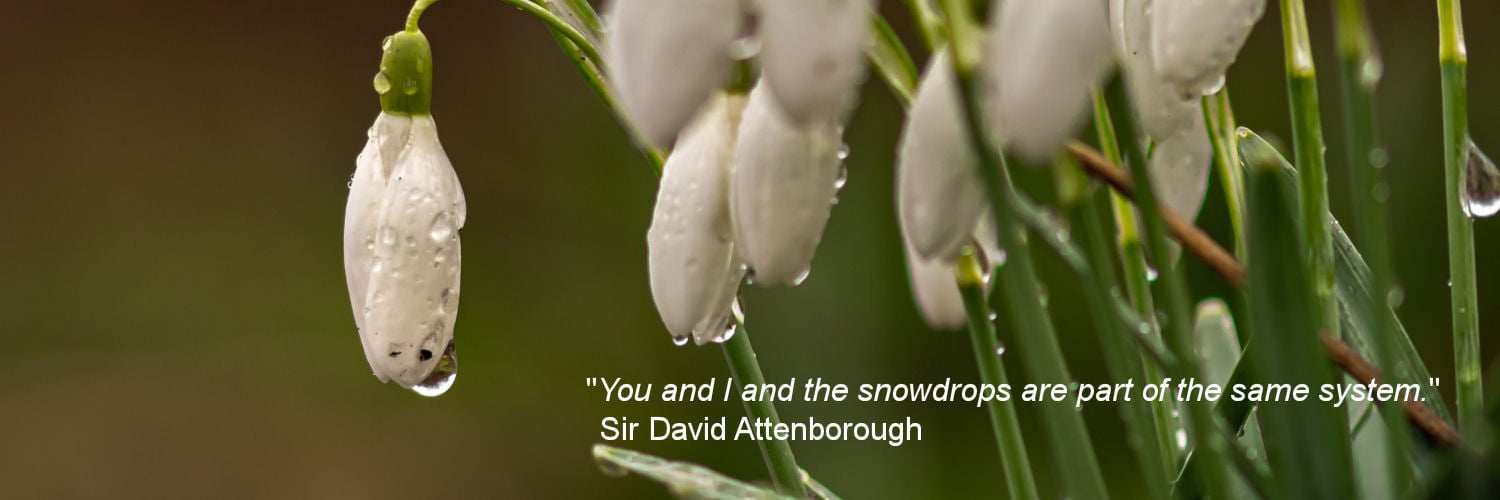Rich Stever, MEd, Chair/Founder of Earth’s Green Guardians
Earth’s Green Guardians (EGG) is a registered charity that empowers youth to make a difference and become citizen naturalists. We believe that when children mindfully connect with nature, they learn to respect it and want to help look after it. Our motto is - Connect Protect Restore Prepare. We believe that nature education should be integrated into every school in a multidisciplinary way, not just a frill. Nature has so much to teach us. Now, more than ever, we need to act! A Natural History GCSE will help more students become Earth’s Green Guardians.

Covid-19 and Climate Breakdown
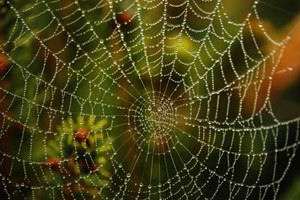 COVID-19 is our wake-up call for the Climate Emergency. The Pandemic has opened our eyes to what catastrophe feels like. Hopefully, we have learned some lessons from the ongoing pandemic about what can be achieved when imaginative thinking is brought to bear. The pandemic, along with wildfires, and flooding accelerated by manmade Climate breakdown have had a catastrophic impact. These events are related because they are naturally occurring phenomena that have forced humans to realise, we are nature too. We are interconnected in the web of life.
COVID-19 is our wake-up call for the Climate Emergency. The Pandemic has opened our eyes to what catastrophe feels like. Hopefully, we have learned some lessons from the ongoing pandemic about what can be achieved when imaginative thinking is brought to bear. The pandemic, along with wildfires, and flooding accelerated by manmade Climate breakdown have had a catastrophic impact. These events are related because they are naturally occurring phenomena that have forced humans to realise, we are nature too. We are interconnected in the web of life.
Mental Health
The pandemic has taken a huge emotional toll on everyone, especially the young. School schedules have been disrupted. Quarantine and isolation have had negative psychological consequences, including depression and anxiety. Our youth feel powerless and many are experiencing eco-anxiety. According to a 2020 Princes Trust Report, one in four UK young people have felt ‘unable to cope’ in the pandemic. Young people are in danger of giving up on their futures and on themselves, with a quarter saying they feel unable to cope with life.
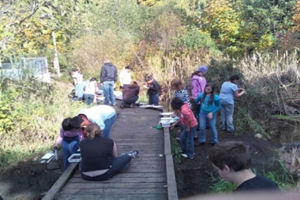
The Prince’s Trust’s long-running annual survey of young people’s happiness and confidence returned the worst findings in its 12-year history.
A carefully executed Natural History course of study/ GCSE will empower our youth with a sense of purpose, create community, restore hope and the promise of a brighter future at a time when it is desperately needed. By providing our youth with opportunities to bond with the local environment they will become part of the story of place, they will develop an intimacy with the Earth.
Eco-nomics
The opening lines of ‘The Economics of Biodiversity’ report by Professor Sir Parthia Dasgupto (2021) says:
"Our economies, livelihoods and well-being all depend on our most precious asset: nature. We are part of nature, not separate from it."
Mark Carney, former Governor of the Bank of England, now Special Envoy to the UN on Climate Change and Finance recently said (2021):
"Climate change is an existential threat. We all recognize that, and there’s increasing urgency around it. But the converse is, if you are making investments, coming up with new technologies, changing the way you do business, all in service of reducing and eliminating that threat, you are creating value. And what we have seen increasingly, spurred initially by the Sustainable Development Goals, accelerated by Paris, and then by social movements and governments, is societies putting tremendous value on achieving net zero. Companies, and those who invest in them and lend to them, and who are part of the solution, will be rewarded. Those who are lagging behind and are still part of the problem will be punished."
In 2020, 1 million Activists from the Youth Adaptation Network signed a call to action urging government interventions over the next decade “to prepare younger generations for the transition towards green and climate-resilient development”. They called for a greater focus on climate change in education around the world, and for educational resources to help communities adapt to the impacts of climate change to be provided online. They also called for more funding for projects that increase resilience to the impacts of climate breakdown.
Compared to the pandemic, Climate Change may be easier to comprehend. We have found a vaccine for the Coronavirus. Now it is time for a Green Vaccine to tackle the Climate Breakdown. Ed Miliband, Member of Parliament, put it this way:
"There is a green element to almost every country’s post-pandemic recovery plan. In other words, we need the biggest peacetime mobilisation of labour, land and investment we have ever seen. From an economy that doesn’t work for the many, a green industrial Revolution can provide meaningful, decently paid work."
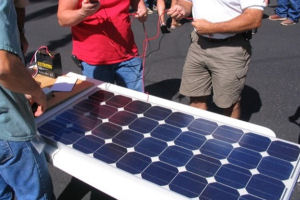 In the UK Renewable energy overtook fossil fuels in 2020. Our youth will need to be prepared with the requisite skills. A carefully designed and implemented Natural History course of studies will help.
In the UK Renewable energy overtook fossil fuels in 2020. Our youth will need to be prepared with the requisite skills. A carefully designed and implemented Natural History course of studies will help.
As important as technology will be in adapting to climate change, the Natural History Studies will not be successful unless we change behaviour. We need to change ourselves, not simply try and change the environment.
Teachable Moment
In my 30 years of teaching experience, I have witnessed how students find Earth Education joyful, stimulating, empowering and inspirational. Earth Education was the hub of my curricular wheel in my Primary classroom. Kids proved to be a ‘natural’ (pun intended) for Earth Education. I found that key ecological principles such as change, community, interrelationships, adaptation, cycles, diversity all cross over into our lives as good planetary citizens. Students can learn much by biomimicry, from the wisdom of all species. For example, observing a spider can teach science standards such as interconnections of all life, characteristics of organisms, and the life cycles of organisms. Students are motivated to read, write and research more about what they observe in nature.
Any lessons that incorporate the senses are stored in the long-term memory. Earth Education in most schools was always considered a fringe subject. It was never taught consistently, with any scope or sequence, from year to year. You might find the occasional teacher who showed some enthusiasm for the Earth, but no follow up in later levels.
2020 marked the 50th anniversary of Earth day, yet very few still take time to celebrate the Earth. It has become a matter of economic and societal survival that we do. I believe that Earth Education, done deliberately and thoughtfully, could integrate all key subjects, give students a sense of wonder and purpose, and prepare them for the inevitable nature-based job opportunities. Bill Gates, founder of Microsoft, recently (2021) said:
"There is no single breakthrough that can solve all the Climate Breakdown issues. The Single most useful thing individuals can do is to educate themselves and better judge the impact of the various solutions, including investing in zero-carbon technologies and affordable and reliable clean energy."
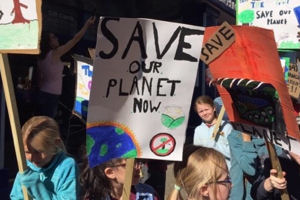
Most recently, teenager Greta Thunberg’s peaceful protest of the Climate Emergency has motivated young people to stand up and hold school strikes, demanding a better future for our Planet.
Students are motivated to learn. We are in one of the best teachable moments we have had for a long time.
As important as it is to learn to live more Lightly, Climate Change simply cannot be solved by changing our personal behavior. It will take collaboration between individuals, communities, businesses, politicians, and educators. It is time to explicitly teach climate change adaptation and mitigation skills. We need to educate to change systems and develop and deploy climate technologies that will enable economic prosperity without carbon pollution. A just form of climate conscious capitalism for social well-being that leaves no one behind. Only when we have an economy that considers the Ecosystem first can we truly thrive for the long term, physically, mentally and spiritually. That’s sustainability!
I conclude with another excerpt from ‘The Economics of Biodiversity’ report by Professor Sir Parthia Dasgupto (2021):
"It would seem then that, ultimately, we each have to serve as judge and jury for our own actions. And that cannot happen unless we develop an affection for Nature and its processes. As that affection can flourish only if we each develop an appreciation of Nature’s workings, the Review ends with a plea that our education systems should introduce Nature studies from the earliest stages of our lives, and revisit them in the years we spend in secondary and tertiary education. The conclusion we should draw from this is unmistakable: if we care about our common future and the common future of our descendants, we should all in part be naturalists."
Rich Stever - Founder and Chair, Earth's Green Guardians (EGG)
Rich Stever is Founder and Chair of the registered start-up charity, Earth’s Green Guardians (EGG) based in Cornwall, UK.
He has been an Earth Education advocate for his entire career and used it as the hub of his curricular wheel.
He was involved in selling solar hot water systems and as a Solar Service manager In the 1990s. He worked as a curriculum design specialist for the Department of Energy at Los Alamos National Laboratories in New Mexico, USA and helped design and publish 'Students Watching Over Our Planet Earth'.
Rich is a graduate of The University of New Mexico and has a master's degree from Washington State University. Rich has also worked as an adjunct professor of science at Washington State University.
A native of New York, USA, Rich has now retired in Cornwall with his Cornish wife.
Keep up to date with our proposed GCSE in Natural History and other Cambridge OCR Natural History news by signing up our email newsletter and updates. You can read back issues of our Natural History newsletter here.
